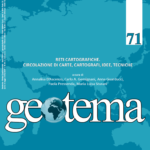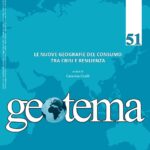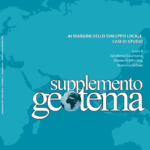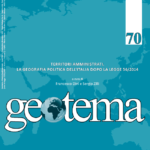Gavino Mariotti, Silvia Carrus, Enrico Panai, Vanni Martinez, Maria Veronica Camerada
Smart destinations e competitività in ambito turistico. Il ruolo della cyber security
Il processo di digitalizzazione delle destinazioni turistiche richiede un ammodernamento strutturale e globale dell’impianto tecnologico e delle procedure in esso presenti. In particolare, il trattamento e la trasmissione delle informazioni diventano un punto nevralgico del settore dell’ospitalità che rende necessario un nuovo inquadramento concettuale degli spazi interessati all’accoglienza, dei flussi e all’offerta dei prodotti turistici. Il paper definisce il perimetro d’azione entro il quale tale sistema opera – lo spazio cibernetico – e indaga, attraverso la cyber security, i rischi connessi alla gestione dei flussi di informazioni, individuando soluzioni che permettano di proteggere meglio il comparto turistico, ivi compresa la reputazione web delle aziende operanti nel territorio. Si analizza il legame esistente tra competitività turistica e sicurezza informatica, per derivare una nuova tassonomia di proprietà delle informazioni, più appropriata alle strutture ricettive turistiche. L’obiettivo è quello di sensibilizzare gli stakeholders all’igiene informatica (cyber hygiene), per diminuire i rischi di attacchi nel breve termine e concorrere alle realizzazioni di destinazioni intelligenti, adatte ad accogliere flussi che caratterizzano lo spazio geografico turistico-digitale.
Abstract: Competitiveness in the Tourism Industry. The Role of Cyber Security
The process of digitizing tourist destinations requires global structural modernization of technological system and the procedures within. In particular, the processing and transmission of information becomes a focal point of the hospitality industry, which requires a new conceptual framework of the spaces involved in the reception of touristic flows and product offerings. The paper defines the perimeter of action in which this system operates: the cybernetic space; through cyber security the risks connected to the management of information flows are investigated, identifying solutions to better protect the tourism sector, including the web reputation of the companies operating in the territory. The link between tourism competitiveness and cyber security is analyzed, to derive a new taxonomy of information ownership, more appropriate to tourist accommodation facilities. The goal is to enlighten the stakeholders to cyber hygiene, to decrease the short-term risks of attacks and contribute to the realization of smart destinations, suitable to accommodate flows that characterize the tourist-digital geographical area.
Résumé: Compétitivité dans l’industrie du tourisme. Le rôle de la cyber sécurité
Le processus de numérisation des destinations touristiques nécessite une modernisation structurelle globale du système technologique et de ses procédures. En particulier, le traitement et la transmission des informations deviennent un point central de l’industrie hôtelière, ce qui nécessite un nouveau cadre conceptuel des espaces impliqués dans la réception des flux touristiques et des offres de produits. Le document définit le périmètre d’action dans lequel ce système fonctionne: l’espace cybernétique. Grace à la cyber sécurité, les risques liés à la gestion des flux d’informations font l’objet d’une enquête, qui nous fait identifier des solutions permettant de mieux protéger le secteur du tourisme, y compris la réputation des sociétés opérant dans le territorire. Le lien entre la compétitivité du tourisme et la cyber sécurité est analysé afin d’exprimer une nouvelle taxonomie des propriétés de l’information, plus appropriée aux hébergements touristiques. L’objectif est les acteurs sur la cyber-hygiène, de réduire les risques d’attaques à court terme et de contribuer à la réalisation de destinations intelligentes, adaptées aux flux qui caractérisent l’espace géographique, touristique et numérique.
Parole chiave: sicurezza informatica, turismo, destinazioni intelligenti
Keywords: cyber security, tourism, smart destinations
Mots-clés: cyber sécurité, tourisme, destinations intelligentes









